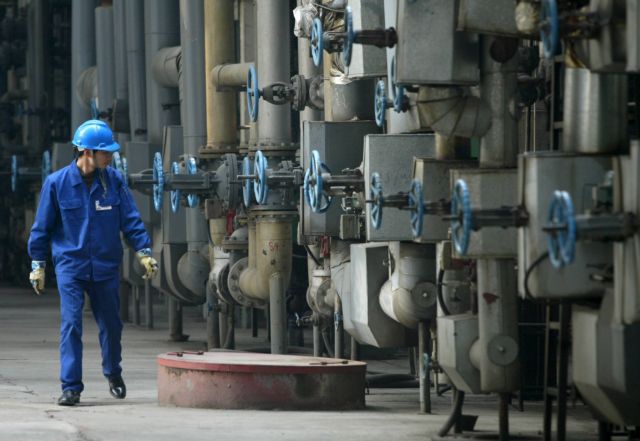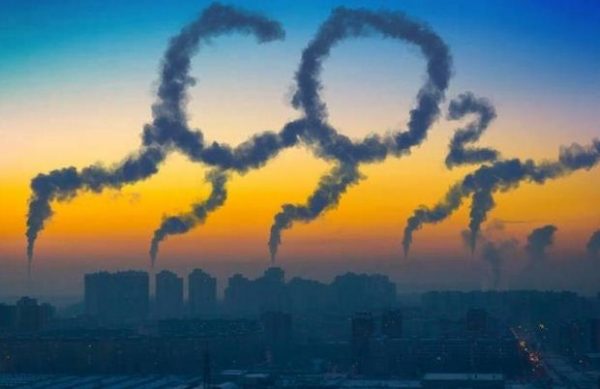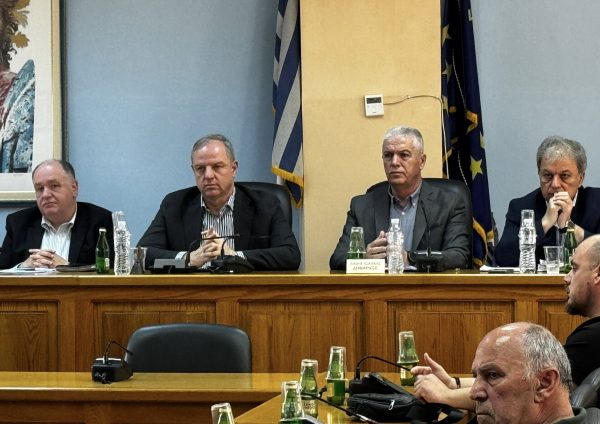
In the areas of Pentalofos and Eptachori in Western Macedonia, large geological formations are located underground – at a depth greater than 850 meters – with suitable carbon dioxide (CO2) adsorption sites. This emerged from the research work of the European “Strategy CCUS” program on Carbon capture, utilization and storage – CCUS.
Dr. Nikolaos Koukouzas, Director of Research at the Centre for Research and Technology-Hellas (CERTH), which is one of the partners of the project told OT about the identification of the two possible sites for CO2 storage in Western Macedonia. There are strong indications from available geological data and from past seismic surveys and pilot drilling in the area that these are suitable sites. In fact, as Mr. Koukouzas points out, there are also indications of the existence of the necessary overlying geological formation that will ensure tightness against any CO2 leaks. In any case, new seismic surveys and drilling are needed to confirm the initial scientific findings.
Thus, a continuation of the specific program, in which 17 partners from ten European countries (France, Germany, Greece, United Kingdom-Scotland, Spain, Croatia, Norway, Poland, Portugal, Romania) participated, is the “Pilot Strategy” program, the which has a completion horizon of 2026. The participating scientific bodies will evaluate the prospect of geological CO2 storage in deep saline aquifers (DSA).
Carbon dioxide storage
As Mr. Koukouzas explains, saline aquifers belong to the category of sedimentary strata that are found at great depths and are saturated in water with high concentrations of dissolved salts. According to him, the unfit for drinking and use water of these rocks can absorb and remove CO2 permanently.

In particular, within the framework of the “Pilot Strategy” the study has begun in the areas of the basins of Paris (France), Lusitania (Portugal) and Ebro (Spain). Also, know-how will be strengthened in the regions of Western Macedonia in Greece and Upper Silesia in Poland to develop storage capabilities. The purpose is to achieve the characterization of the areas so that the investment decisions can then be made and the permits given for the storage and approval of the projects.
Applications of carbon capture, storage and reuse technology, although at an early stage, are demonstrating environmental and economic benefit, as is the case in Norway where carbon dioxide emissions are captured, stored in geological “reservoirs” and a portion sold to industries for reuse.

In 2019, there were 51 carbon capture and storage projects recorded worldwide, of which 19 were in commercial operation. In fact, it is estimated that the operation of all 51 projects could prevent the release of 40 million tons of CO2 per year.
At the same time, as Mr. Koukouzas underlines, the HySTORIES project is progressing, the first in Greece to investigate underground hydrogen storage in all possible types of geological formations. The aim is the creation of a unified database with the available geological data for hydrogen storage reservoirs, the evaluation of the relevant regulatory framework and the modeling of the European Energy System, the connection of hydrogen production and storage sites as well as the study of the distance of hydrogen storage sites with wind and solar farms. The partners of the program are Geostock, Ludwig-Bölkow-Systemtechnik GmbH (LBST), Montanuniversitaet Leoben, MicroPro, Foundation for the development of New Hydrogen Technologies in Aragon, MEERI PAS and CO2GeoNet (EKETA). All programs are funded by the Horizon 2020 Project.
Latest News

IMF: US Tariffs Shake Global Economy, Outlook Downbeat
IMF slashes global growth forecast to 2.8% as U.S. tariffs create uncertainty and ‘negative supply shock

First Step Towards New Audiovisual Industry Hub in Drama
The project is set to contribute to the further development of Greece’s film industry and establish Drama as an audiovisual hub in the region

Airbnb Greece – Initial CoS Ruling Deems Tax Circular Unlawful
The case reached the Council of State following annulment applications filed by the Panhellenic Federation of Property Owners (POMIDA)

Mitsotakis Unveils €1 Billion Plan for Housing, Pensioners, Public investments
Greek Prime Minister Kyriakos Mitsotakis has announced a new set of economic support measures, worth 1 billion euros, aiming to provide financial relief to citizens.

Alter Ego Ventures Invests in Pioneering Gaming Company ‘Couch Heroes’
Alter Ego Ventures' participation in the share capital of Couch Heroes marks yet another investment by the Alter Ego Media Group in innovative companies with a focus on technology.

Corruption Still Plagues Greece’s Driving Tests
While traffic accidents continue to claim lives on Greek roads daily, irregularities and under-the-table dealings in the training and testing of new drivers remain disturbingly widespread

Pope Francis Died of Stroke and Heart Failure Vatican Confirms
As news of the official cause of death spread, tributes poured in from across the globe. The 1.4 billion-member Catholic Church is united in grief, remembering a pope who championed inclusion, justice, and compassion

Increase in Both Museum Visits, Revenues for 2024
As expected, the Acropolis was the top archeological site in the country, followed by Sounion, Mycenae, the ancient theater of Epidaurus, and Vergina in northern Greece

Where Greece’s Tourists Come From: A Look at 2025’s Top Visitor Markets
The United Kingdom continues to hold the top spot as the largest source of incoming tourism, with 5.6 million seats booked for Greece this summer — up 2.2% from last year. This accounts for 20% of all international air traffic to Greece

Pope Francis: A Pontiff Who Reshaped the Papacy and Sparked a Global Conversation
His first words from the balcony of St. Peter’s Basilica—“Brothers and sisters, good evening”—set the tone for a pontificate that would challenge norms, favor mercy over dogma, and bring the papacy closer to the people.












![Πλημμύρες: Σημειώθηκαν σε επίπεδα ρεκόρ στην Ευρώπη το 2024 [γράφημα]](https://www.ot.gr/wp-content/uploads/2025/04/FLOOD_HUNGRY-90x90.jpg)



![Ξενοδοχεία: Μεγάλο το ενδιαφέρον για επενδύσεις στην Ελλάδα – Η θέση της Αθήνας [γραφήματα]](https://www.ot.gr/wp-content/uploads/2025/03/Athens-hotels-90x90.jpg)
























 Αριθμός Πιστοποίησης
Αριθμός Πιστοποίησης